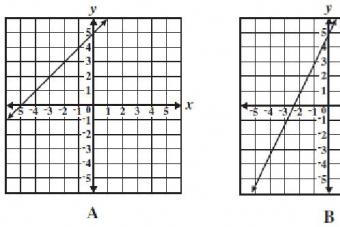Probably, there is no such person who, at least once in his life, would not have been poisoned with stale food, medicine or vegetation. Everyone knows that the first aid is adsorbents, which attract hazardous substances to themselves, and then gently remove them from the body. Classic activated carbon will help with any type of poisoning, but it is advisable to grind it to a powder state, which takes additional time. To quickly get rid of the manifestations of poisoning, you need to take activated charcoal in capsules, which begins to work in the first minutes after entering the stomach.
Characteristics of the drug
 Activated carbon is an adsorbent of natural origin, which is characterized by good surface activity and high absorption capacity.... The active ingredient is active charcoal, powdery. The drug prevents the absorption of toxins, heavy metal salts, medicines and other harmful substances from the digestive tract, which are then excreted from the body naturally. A feature of this adsorbent is that it can collect gases on the surface.
Activated carbon is an adsorbent of natural origin, which is characterized by good surface activity and high absorption capacity.... The active ingredient is active charcoal, powdery. The drug prevents the absorption of toxins, heavy metal salts, medicines and other harmful substances from the digestive tract, which are then excreted from the body naturally. A feature of this adsorbent is that it can collect gases on the surface.
The pharmaceutical industry produces an activated carbon called extrasorb in capsules and tablets. The drug in capsules begins to act faster, therefore it is considered more effective.
You can find 110, 220 or 250 mg capsules in pharmacies., which are packed in a contour packaging made of foil or PVC and packed in a cardboard box.
Extrasorb is not absorbed in the gastrointestinal tract and is excreted unchanged with feces.
Indications for use
 Powdered activated carbon is used as first aid for poisoning, as well as in the complex treatment of certain diseases. It is prescribed for:
Powdered activated carbon is used as first aid for poisoning, as well as in the complex treatment of certain diseases. It is prescribed for:
- dyspepsia;
- diseases that occur with fermentation and the release of gases in the intestines;
- increased acidity, as well as excess secretion of gastric juice;
- diarrhea;
- poisoning of various etiologies;
- diseases that occur with general intoxication of the body - toxin infections, rotavirus, dysentery, salmonellosis and burn disease of various stages;
- chronic renal failure;
- hepatitis of various origins and liver cirrhosis;
- allergic diseases;
- in the treatment of bronchial asthma in complex therapy.
Moreover, the drug in powder is prescribed for atopic dermatitis as well as before medical research to reduce intestinal gas production.
The adsorbent is actively taken in order to normalize weight. But you should not get carried away with such weight loss, since extrasorb does not differ in selective activity and removes both harmful and useful substances.
Contraindications to the appointment
 A number of contraindications are prescribed in the instructions for use, which must be taken into account when prescribing. These include the following conditions and diseases:
A number of contraindications are prescribed in the instructions for use, which must be taken into account when prescribing. These include the following conditions and diseases:
- Particular sensitivity to the active substance of the medication.
- Ulcerative diseases of the digestive tract.
- Suspected bleeding in the stomach or intestines.
- Bowel obstruction.
The drug is prescribed with caution while treating with antitoxic agents, the effectiveness of which develops after complete absorption, for example, methionine.
It is advisable to take activated charcoal in short-term courses, only as first aid.
How to take extrasorb
 Take an adsorbent 1-3 tablets 250 mg several times a day... Children are usually prescribed a daily dose of 50 mg per 1 kg of body weight, which is divided into several doses. A single therapeutic dose for children should not exceed 200 mg.
Take an adsorbent 1-3 tablets 250 mg several times a day... Children are usually prescribed a daily dose of 50 mg per 1 kg of body weight, which is divided into several doses. A single therapeutic dose for children should not exceed 200 mg.
In case of poisoning, the dosage is calculated individually, depending on the weight of the patient and the severity of the condition. In case of severe intoxication, preliminary gastric lavage with a suspension of powdered activated carbon is recommended, and then the patient is prescribed capsules in an age-specific dosage.
The extrasorb capsules are washed down with clean drinking water... It is not recommended to use other liquids for drinking, so as not to reduce the effectiveness of the adsorbent.
Capsules of activated carbon in the complex treatment of diseases are drunk one hour before or one hour after eating and taking other medications.
Side effects
Regardless of the form of release, activated carbon can give a number of side effects, these include:
- bowel disorders, which are manifested by constipation or diarrhea;
- hypovitaminosis - this phenomenon is observed with long courses of treatment;
- decreased absorption of nutrients from the digestive tract.
If a woman is taking hormonal contraceptives, then during the therapy with activated charcoal it is necessary to additionally protect herself, since the adsorbent prevents the absorption of hormones.
What to look for
 It is necessary to store the drug extrasorb in its original packaging, in a dry and cool place.... Substances and products that are characterized by increased volatility should not be stored nearby. When storing capsules in air, without packaging, the adsorption capacity can be significantly reduced.
It is necessary to store the drug extrasorb in its original packaging, in a dry and cool place.... Substances and products that are characterized by increased volatility should not be stored nearby. When storing capsules in air, without packaging, the adsorption capacity can be significantly reduced.
Everyone is familiar with black activated carbon tablets since childhood. Now the pharmaceutical industry is releasing this drug in capsules, which only increases the effectiveness. Before starting the appointment, you need to carefully study the instructions, where contraindications, side effects and conditions of admission are clearly spelled out.
Carbo activatusActive substance
Activated carbon (Carbo activatus)ATX
A07BA01 Activated carbonStorage conditions
At a temperature not exceeding 25 ° C. Keep out of the reach of children.Best before date
2 years. Do not use after the expiration date indicated on the package. 2000-2017. Register of medicines of RussiaIndications
Dyspepsia, diseases accompanied by the processes of putrefaction and fermentation in the intestine (including flatulence), increased acidity and hypersecretion of gastric juice, diarrhea, acute poisoning (including alkaloids, glycosides, heavy metal salts), diseases with toxic syndrome - foodborne diseases, dysentery, salmonellosis, burn disease in the stage of toxemia and septicotoxemia, hyperazotemia (chronic renal failure), hyperbilirubinemia (chronic and acute viral hepatitis, liver cirrhosis), allergic diseases, bronchial asthma, atopic dermatitis, preparation for ultrasound and (to reduce flatulence in the intestines).Contraindications
Hypersensitivity, ulcerative lesions of the gastrointestinal tract (including exacerbation of gastric ulcer and duodenal ulcer, ulcerative colitis), bleeding from the gastrointestinal tract, intestinal atony, simultaneous administration of antitoxic substances, the effect of which develops after absorption (methionine, etc.).special instructions
It is recommended to store it in a dry place, away from substances that emit gases or vapors into the atmosphere. Storage in air (especially in a humid environment) reduces the sorption capacity.Pharmacological groups
Detoxifying agents, including antidotesSide effects
Dyspepsia, constipation or diarrhea, black stools; with prolonged use (more than 14 days), the absorption of calcium, fats, proteins, vitamins, hormones, nutrients may be impaired; with hemoperfusion through activated carbon, it is possible to develop embolism, hemorrhage, hypoglycemia, hypocalcemia, hypothermia, and a decrease in blood pressure.Many sorbents are used for medicinal purposes, but activated carbon is very popular among patients. Due to the high degree of absorption, it helps with flatulence, poisoning, seasonal allergies, and can be used as a universal antidote for intoxication of the body with various poisons.
Composition and form of release
Activated carbon is popular not only in the CIS, but also in foreign countries. There he is better known as the Activated charcoal. The drug is produced in the form of small round black tablets of 10, 20, 50 pieces and a powder of 5.10, 100, 150 grams per package. The composition of the drug in tablets and powder form is identical. Coal obtained by heating and additional chemical treatment of peat, coal or charcoal is used as an active component.
The composition of the excipients varies depending on the manufacturer. As a rule, it includes:
The action of activated carbon
The drug is used for cosmetic purposes, for the treatment and prevention of many diseases. Activated carbon is an effective adsorbent. The drug has a high sorption capacity, instantly absorbs and naturally removes allergens, poisons, toxins, chemicals, heavy metal salts, alkaloids, barbiturates, gases from the body.
The powder form of the drug is used externally. When used topically, the sorbent is poured onto a wound or ulcer and sealed with a plaster. The drug promotes rapid healing of soft tissues, has an antiseptic effect, and stops minor bleeding. The powder begins to act in 15 minutes, the tablets - in 30-60 minutes after ingestion. The sorbent is not absorbed by the body, it is excreted along with the feces in a natural form. Both types of medicine are non-toxic.
The use of activated carbon
In cosmetology, charcoal is used to prepare masks that effectively eliminate acne, teenage rashes, and normalize the oily skin. Crushed tablets cleanse teeth from plaque and yellowness. The drug interacts with hydrochloric acid, neutralizes its excess, therefore it is often used as a remedy for heartburn.
The official instructions for use state that it is necessary to use the sorbent if the following indications are present:
- bloating;
- dyspepsia - digestive disorders of the stomach and intestines;
- atopic dermatitis - a hereditary predisposition of the body to allergic skin reactions;
- hyperbilirubinemia (liver cirrhosis, acute or chronic hepatitis)
- diarrhea;
- acute poisoning with chemicals, drugs;
- toxic syndrome with salmonellosis, dysentery, food intoxication;
- bronchial asthma;
- to reduce gas and flatulence in the intestines before ultrasound or endoscopy.
How to take activated charcoal
The sorbent is taken orally two hours after or one hour before meals. The dosage of charcoal for an adult is 250-750 mg (1-3 tablets) 3-4 times / day. The maximum daily dose, according to the instructions, is 950 mg. For diseases of the stomach, which are accompanied by excessive production of gastric juice, adults need to take 10 grams of the drug 3 times / day. In the acute stages of the disease, treatment should be continued for 3-5 days.
For allergies
Numerous studies have confirmed that medication for allergies helps cleanse the blood and reduces slagging. The dosage is selected according to the patient's weight: for every 10 kg, you need to take 1 tablet. The best method is when the patient takes the first half of the daily dose in the morning on an empty stomach, and the second half before bedtime. The tablets must be swallowed whole with a glass of water. For the prevention of atopic dermatitis, the instruction recommends taking the drug 2-4 times a year, for a month and a half.
In case of poisoning
In case of acute poisoning, gastric lavage must be performed before taking the drug. To do this, dilute 1 tablespoon of powder in 1 liter of water and take 100-150 ml throughout the day. After that, coal in tablets is prescribed, in dosages of 20-30 grams 3 times / day.
To cleanse the body
The sorbent absorbs all harmful substances and toxins from the digestive tract, and then removes them from the body with feces. Taking charcoal to cleanse the body also improves metabolism, promotes better absorption of vitamins. To remove toxins from the body, the instruction recommends taking the drug every day at the rate of 1 tablet per 1 kg of weight. Duration of cleaning is 2-4 weeks.
For diarrhea and constipation
Bowel disorders, flatulence, dyspepsia can occur due to various reasons: allergic reactions, poisoning, vitamin deficiency, dysbiosis. To get rid of diarrhea, the instruction recommends using charcoal inside, 1-2 g 3-4 times / day. The treatment lasts 3 to 7 days.
Sorbent also helps to cleanse the intestines, therefore it is often prescribed by doctors for constipation. At the first problems with the toilet, you need to take 2-5 tablets 3-4 times / day. If the problem cannot be resolved, it is permissible to cleanse the intestines using higher doses, but in consultation with the doctor.
With alcohol intoxication
Activated carbon helps to neutralize ethyl alcohol derivatives, cleanses the body of toxins and toxins, helps to reduce headaches and epigastric pain. In case of a hangover, the sorbent, according to the instructions, must be taken at the rate of 1 tablet per 10 kg of weight throughout the day, then a single dose in the morning. Before the feast - 2-4 tablets, then every two hours, 500 mg of sorbent.

special instructions
When the sorbent is taken, the feces become black. This is considered normal and does not require treatment withdrawal. The drug does not affect the reaction rate; it can be used by people whose work is related to driving a car or complex production mechanisms. At the end of the course of treatment with a sorbent, it is recommended to take medications or products containing live bifidobacteria for the next two weeks.
During pregnancy
The instruction does not contain data on the effect of the sorbent on the development of the fetus, the woman's body during pregnancy or lactation. It is necessary to take pills according to the instructions, taking into account all contraindications. If desired, the tablets can be replaced with white coal, but it should be borne in mind that this drug has less adsorbing ability.
In childhood
The instruction contains a detailed description of the use of the sorbent in childhood. Dosage, duration of use depends on the age, disease and body weight of the child:
- With diarrhea, children 3 years old are prescribed 0.05 grams of the drug per 1 kg of body weight 3 times / day. The allowable upper limit is 0.2 mg / kg.
- In case of acute poisoning, the stomach is washed first, then 20-30 g of sorbent is prescribed. Frequency rate of application - 3 times / day. The duration of treatment is 7-14 days.
- To eliminate flatulence, putrefaction or fermentation in the intestines, in case of stomach diseases, which are accompanied by increased secretion of hydrochloric acid, until the age of seven, 5 grams of coal should be taken, children over 7 years old should take 7 grams of sorbent 3 times / day for 7-14 days.
Use for weight loss
Sorbent only indirectly contributes to weight loss. The drug does not burn subcutaneous fat, but cleanses the intestines, improves fat metabolism. There is a special "coal" diet, according to which it must be taken in a course of 10 days. To lose weight, coal is drunk according to one of the following schemes:
- On the first day of dieting, drink 3 tablets, then add 1 pc. daily until the dose equals 1 tab. for 10 kg of weight.
- 10 tablets every day, divided into 3-4 doses.
- In the morning on an empty stomach at the rate of 1 tab. for 10 kg of weight.
Drug interactions
It is not recommended to take any other drugs together with activated carbon according to the instructions. The sorbent helps to reduce their effectiveness by absorbing some of the active ingredients. Women who use oral contraceptives are advised to use other means of protection during treatment with the drug.
Side effects
Sorbent is not recommended to be taken for more than 14 days. Abuse of the drug can impair the absorption of vitamins, nutrients, hormones. Hemoperfusion (removal of harmful substances from the blood) sometimes leads to the following negative reactions:
- lowering blood pressure;
- hypothermia (decrease in body temperature below normal levels);
- constipation;
- hypocalcemia (a decrease in the concentration of calcium in the body);
- hemorrhages (bleeding from blood vessels on tissues or internal organs);
- hypoglycemia (lowering glucose levels).
Trade name of the drug:
Activated carbonInternational non-proprietary name:
Activated carbonDosage form:
tabletsCompound:
for 1 tablet:active substance: activated carbon - 250 mg.
Excipients: potato starch.
Description:
Round flat-cylindrical tablets of black color, slightly rough with beveled and scored.Pharmacotherapeutic group:
Enterosorbent agent.ATX code:
A07BA01Pharmacological properties
Pharmacodynamics
It has an enterosorbent, detoxifying and antidiarrheal effect. It belongs to the group of polyvalent physicochemical antidotes, has a high surface activity. Adsorbs poisons and toxins from the gastrointestinal tract prior to their absorption, including alkaloids, glycosides, barbiturates and other hypnotics and narcotics, salts of heavy metals, toxins of bacterial, plant, animal origin, phenol derivatives, hydrocyanic acids, sulfonamides, gases. The drug also adsorbs an excess of certain metabolic products - bilirubin, urea, cholesterol, as well as endogenous metabolites responsible for the development of endogenous toxicosis. Poorly adsorbs acids and alkalis (including iron salts, cyanides, malathion, methanol, ethylene glycol). It is active as a sorbent in hemoperfusion. Does not irritate the mucous membrane of the gastrointestinal tract.
Pharmacokinetics
Not absorbed, not degraded, excreted completely through the gastrointestinal tract within 24 hours.
Indications for use
Exogenous and endogenous intoxication of various origins (as a detoxifying agent). Food toxicoinfections, dysentery, salmonellosis (with complex treatment). Poisoning with drugs (psychotropic, hypnotic, narcotic), alkaloids, heavy metal salts and other poisons. Diseases of the gastrointestinal tract, accompanied by dyspepsia and flatulence. Food and drug allergies. Hyperbilirubinemia (viral hepatitis and other jaundice) and hyperazotemia (renal failure). To reduce gas formation in the intestine before ultrasound and X-ray examinations. In order to prevent chronic intoxication in hazardous work.Contraindications
Hypersensitivity to the components of the drug, ulcerative lesions of the gastrointestinal tract (including peptic ulcer and duodenal ulcer, ulcerative colitis), bleeding from the gastrointestinal tract, intestinal atony, concomitant administration of antitoxic drugs, the effect of which develops after absorption ( methionine and others).Carefully
Patients with diabetes mellitus and those on a diet low in carbohydrates.
Application during pregnancy and during breastfeeding
It is possible to use the drug during pregnancy and during breastfeeding, if the expected benefit to the mother outweighs the potential risk to the fetus and child. It is necessary to consult a doctor.Method of administration and dosage
Inside, in tablets or in the form of an aqueous suspension of crushed tablets, 1-2 hours before or after meals and other medicines. The required number of tablets is stirred in 100 ml (1/2 glass) of chilled water.Adults are prescribed an average of 1.0-2.0 g (4-8 tablets) 3-4 times a day. The maximum single dose for adults is up to 8.0 g (16 tablets).
For children, the drug is prescribed on average 0.05 g / kg of body weight 3 times a day, depending on body weight. The maximum single dose is up to 0.2 g / kg of body weight. The course of treatment for acute diseases is 3-5 days, for allergies and chronic diseases - up to 14 days. A second course - in 2 weeks on the recommendation of a doctor.
In case of acute poisoning, treatment is prescribed with gastric lavage using a suspension of activated carbon, then 20-30 g of the drug is given orally.
With flatulence, appoint 1.0-2.0 g (4-8 tablets) 3-4 times a day. The course of treatment is 3-7 days.
Side effect
Dyspepsia, constipation or diarrhea, dark staining of stool. With prolonged use (more than 14 days), it is possible to reduce the absorption of vitamins, calcium and other nutrients from the gastrointestinal tract.If you experience side effects not described in this instruction, you should stop taking the drug and inform your doctor about it.
Overdose
To date, no cases of overdose have been registered.Interaction with other medicinal products
Reduces the absorption and effectiveness of concomitant medications.special instructions
When treating intoxication, it is necessary to create an excess of coal in the stomach (before washing it) and in the intestine (after washing the stomach). A decrease in the concentration of coal in the medium promotes the desorption of the bound substance and its absorption (to prevent the resorption of the released substance, repeated gastric lavage and the appointment of coal are recommended). The presence of food masses in the gastrointestinal tract requires the introduction of coal in high doses, since the contents of the gastrointestinal tract are absorbed by the coal and its activity decreases. If the poisoning is caused by substances involved in the enterohepatic circulation (cardiac glycosides, indomethacin, morphine and other opiates), charcoal must be used for several days. When using the drug for more than 10-14 days, prophylactic prescription of vitamins and calcium preparations is necessary.Patients with diabetes mellitus and those on a diet low in carbohydrates should take into account that one tablet of the drug contains about 47 mg of carbohydrates (0.004 XE).
It is recommended to store it in a dry place, away from substances that emit gases or vapors into the atmosphere. Storage in air (especially humid) reduces the sorption capacity.
Influence on the ability to drive vehicles and mechanisms
The use of the drug does not affect the ability to perform potentially hazardous activities that require an increased concentration of attention and speed of psychomotor reactions (driving, working with moving mechanisms, the work of a dispatcher and an operator).
Release form
Tablets 250 mg.10 tablets in a contoured cell-free package. 10 tablets in a blister strip packaging.
1 or 2 contoured non-cell packs, together with instructions for use, are placed in a cardboard box.
1 or 2 blister packs together with instructions for use are placed in a cardboard box.
100, 200, 400, 500, 600, 1000 contour non-cell packs without a pack (for hospitals) with an equal number of instructions for use are placed in a box or box made of corrugated cardboard.
100, 200, 400, 500, 600, 1000 blister strip packs without a pack (for hospitals) with an equal number of instructions for use are placed in a box or box made of corrugated cardboard.
Storage conditions
In a dry place at a temperature not exceeding 25 ° C.Keep out of the reach of children.
Best before date
3 years.Do not use after the expiration date.
Vacation conditions
Available without a prescription.Manufacturer
Manufacturer / Address of production site / Organization accepting consumer complaints
JSC "Tatkhimfarmpreparaty", Russia
420091. Republic of Tatarstan, Kazan, st. Belomorskaya, 260
Absorbent agent. Possesses high surface activity and high sorption capacity. Reduces the absorption of toxic substances, salts of heavy metals, alkaloids and glycosides, medicinal substances from the gastrointestinal tract, promoting their excretion from the body. Adsorbs gases on its surface.
Indications
Dyspepsia, intoxication with dysentery, salmonellosis, food poisoning, flatulence, hypersecretion of hydrochloric acid in the stomach, allergic diseases, poisoning with chemical compounds, drugs (including alkaloids, heavy metal salts) to reduce gas formation in preparation for X-ray and endoscopic examinations ...
Contraindications
Ulcerative lesions of the gastrointestinal tract, bleeding from the gastrointestinal tract.
Compound
Capsules 1 capsule activated carbon 110 mg.
Dosage
Inside, 250-750 mg 3-4 times / day. When used as an antidote - The method of administration and dose is individual.
Side effects
Possibly: constipation, diarrhea; with prolonged use - hypovitaminosis, impaired absorption of nutrients from the gastrointestinal tract.





